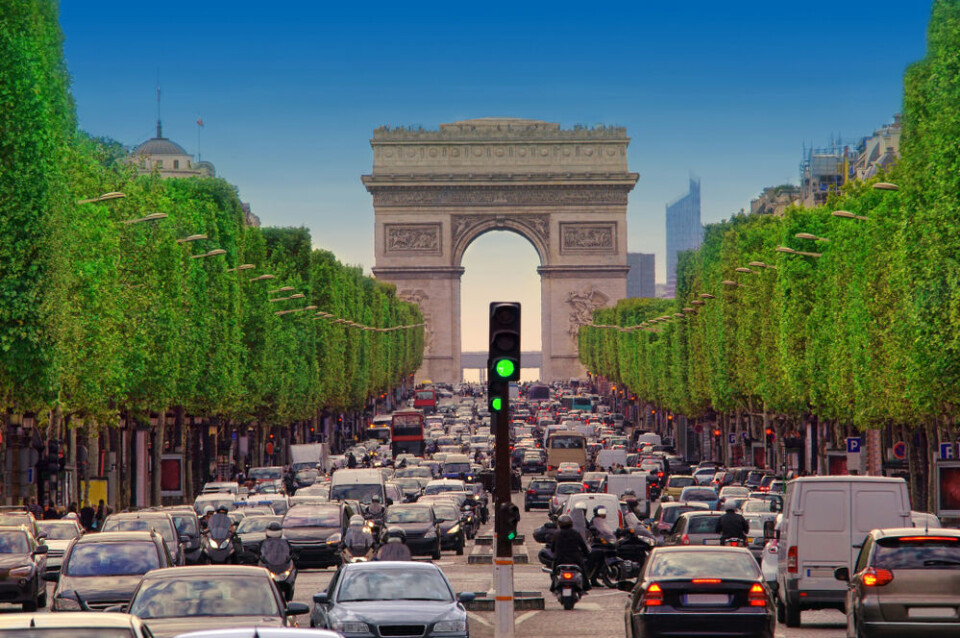-
France tightens reimbursement rules for flight delays or cancellations
New measures include mandatory mediation and new claim procedures
-
What snow conditions look like for skiers across French Alps and Pyrenees
Ski resorts are expected to get busier as school holidays begin this weekend
-
French minister to examine retiree citizenship rules amid claims they are too tough
Senator says ‘thousands’ of well-integrated people being refused on ‘foreign income’ grounds
Crit’Air: Paris limits access of certain cars as pollution spikes
Higher-polluting vehicles are temporarily banned from the city from today, with an air pollution episode expected to last for several more days

Cars that have a Crit’Air rating of above two (meaning three, four or five) are temporarily restricted from entering areas within the A86 ring road around Paris from today (March 26) due to a peak in pollution levels around the city.
New speed limits have also been established, Paris’ Préfecture de Police announced yesterday (March 25):
- Maximum speed of 110 km/h on motorways normally limited to 130 km/h
- Maximum speed of 90 km/h on parts of motorways and expressways normally limited to 110 km/h
- Maximum speed of 70 km/h on parts of motorways or expressways normally limited to 90 km/h
- Maximum speed of 70 km/h on national or departmental roads normally limited to 80 km/h or 90 km/h
The measures are to remain in place “until the end of the air pollution episode”, which could last several more days.
The Préfecture de Police recommends drivers limit, as much as they can, trips in cars and to work from home when possible or use car-sharing services when it is not.
Additionally, Ile-de-France Mobilités will introduce a daily anti-pollution pass, costing €3.80, allowing unlimited use of all public transport in the region.
#Pollution aux particules (PM10) en IDF.
— Préfecture de Police (@prefpolice) March 25, 2022
Mise en place des mesures à compter du 26/03 entre 5h30 et minuit, jusqu'à la fin de l'épisode de pollution :
➡️ Circulation différenciée (🚘 Crit’Air 0 à 2 autorisés à circuler)
➡️ Réduction des vitesses autorisées
➕ d'informations 👇 pic.twitter.com/1Y6PqAPsYw
What is Crit’Air?
It is a sticker that motorists - even tourists from other countries - need in order to be able to drive in some cities – including Paris. It should be displayed on a car's windscreen.
During periods of high pollution, local authorities can impose a range of driving restrictions, including lowering the speed limit.
The number on the sticker relates to the age and engine type (petrol or diesel) of the vehicle. Older, more polluting vehicles, will have a higher number. Electric or hybrid ones will have a lower number.
The stickers can be ordered online at the Crit'Air website - www.certificat-air.gouv.fr - which is available in English, German, Spanish and Italian as well as French. This is the official Crit'Air site. Other sites do exist, but will charge more for the same, simple, service.
The sticker costs €3.70 for cars with a French licence plate or €4.51 for cars with a non-French licence plate.
You can also find out on this site what classification your car will get under the Crit’Air scheme.
Why is Ile-de-France experiencing an air pollution episode?
Airparif, the association responsible for monitoring air quality in Île-de-France, has noted a concentration of PM10 pollution (larger particles) that exceeds the recommended threshold for three consecutive days.
The World Health Organization has said that there is a link between exposure to these particles over a longer term and increased mortality.
The Préfecture de Police said that this air pollution episode is a “persistent” and that it could last for several more days.
It is being caused by several factors, including burning wood, road traffic and agriculture practices, which are combining with weather conditions that are “not favourable to dispersing the pollution”.
Related stories
Nice, Cannes and nearby towns bring in Crit'Air pollution car stickers
More orange skies as Saharan sand on its way to France this weekend
























